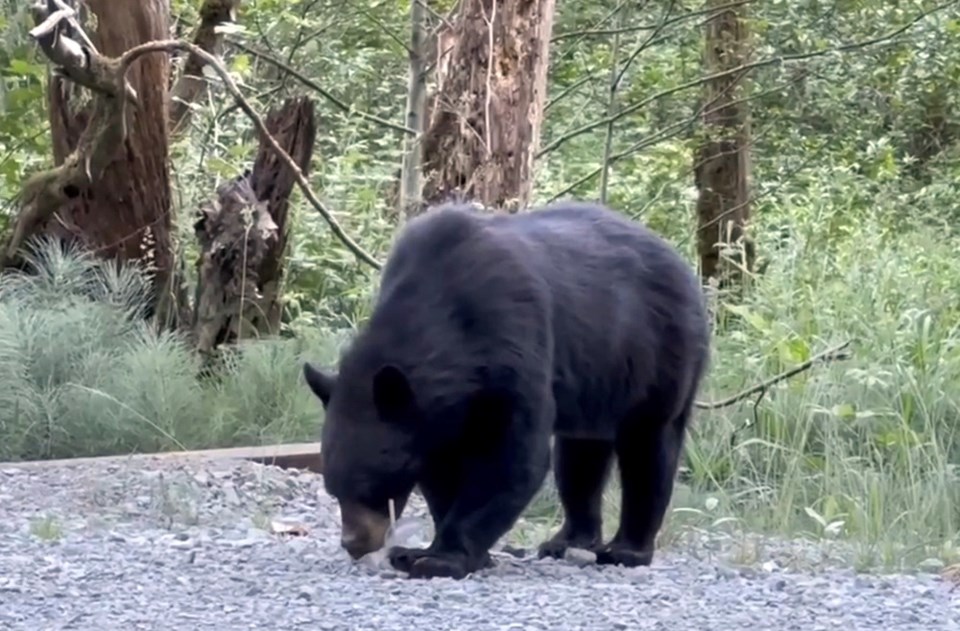A wildlife organization is concerned there may be more traps in the area where a bear was rescued from a leg-hold snare in Coquitlam recently.
Lesley Fox, executive director of The Fur Bearers, said such traps often aren’t set in isolation by property owners trying to manage wildlife activity.
She said the traps could ensnare other unwitting animals, domestic pets or even people.
“There could be other traps out there that could cause serious injury,” Fox said, adding her organization is offering a $1,000 reward for information leading to the identification and conviction of whoever is responsible for placing the trap.
The BC Conservation Officer Service (COS) said the adult black bear was caught near the Pitt River Boat Club at the end of Lincoln Avenue, tranquilized by officers and freed from the trap.
After they determined it hadn’t suffered any injuries, it was relocated to a wilderness area away from the city.
Leg-hold traps that don’t have toothed jaws are legal in Canada, but they’ve been banned in several communities across the province.
Coquitlam has had a bylaw against their use since 1979, except when a trap is set by a city employee for official use or by someone from the B.C. Fish and Wildlife Branch.
Fox said the use of leg-hold traps near a popular recreation destination is particularly distressing. RCMP officers had to block off a section of the Traboulay PoCo Trail while COS officers searched for the trapped bear.
“The Tri-Cities is a hotspot for wildlife activity,” Fox said. “Black bears are a well-loved species in the area and we’ve heard from several people who are concerned about the situation.”
Fox said she hopes the reward will not only help alert people to the potential dangers posed by leg-hold traps, but might also spur action to further regulate their use.
“Trapping regulations are completely outdated,” she said. “There’s an opportunity to strengthen bylaws.”
Fox suggested short of outright bans, rules could be enacted requiring warning signs to be posted in areas where traps have been set and ID tags could be affixed to traps so they can be traced back to the person who sets them.
Anyone with information about the April 30 incident can call the Report All Poachers and Polluters (RAPP) line at 1-877-952-RAPP (7277) or use the online form.



